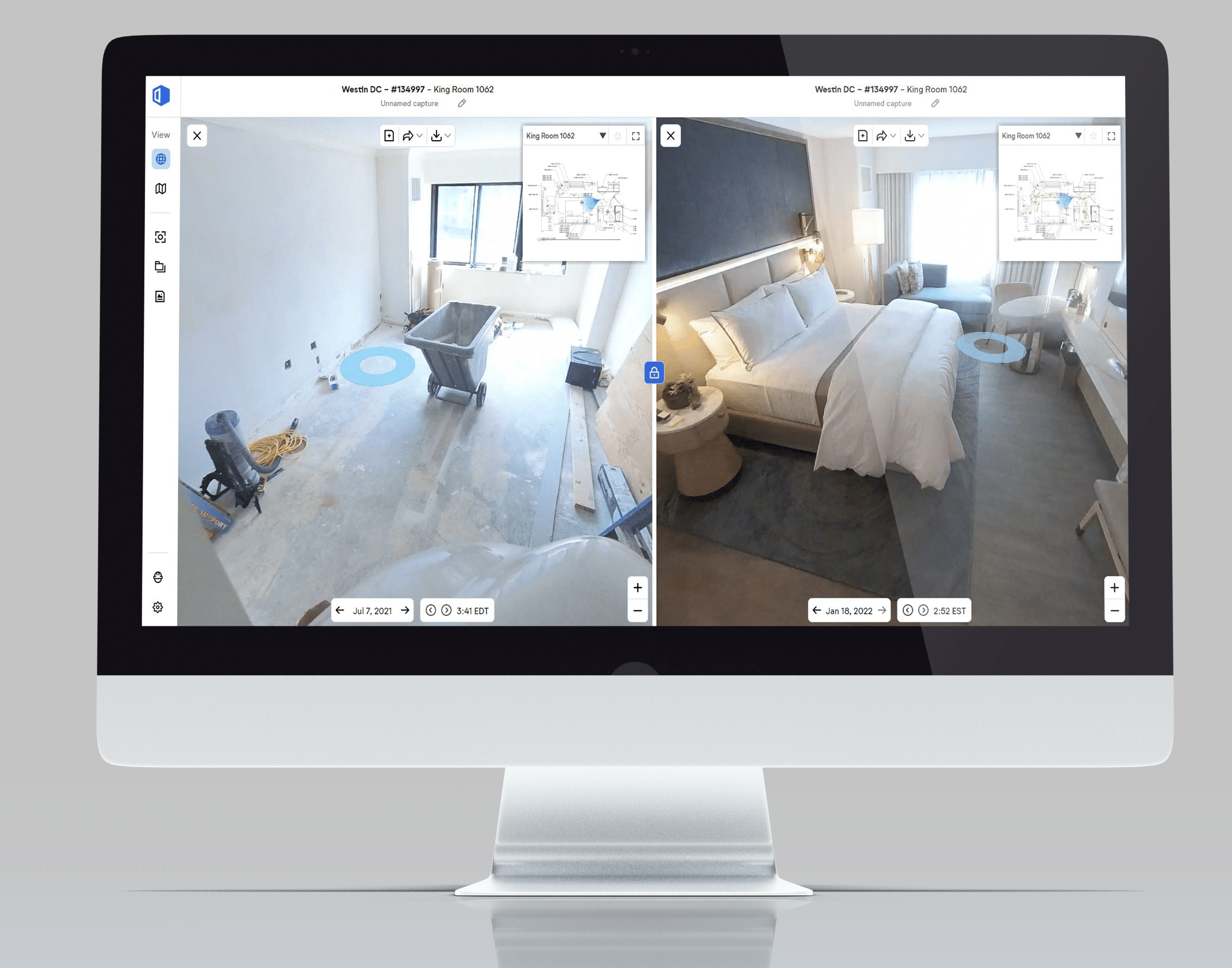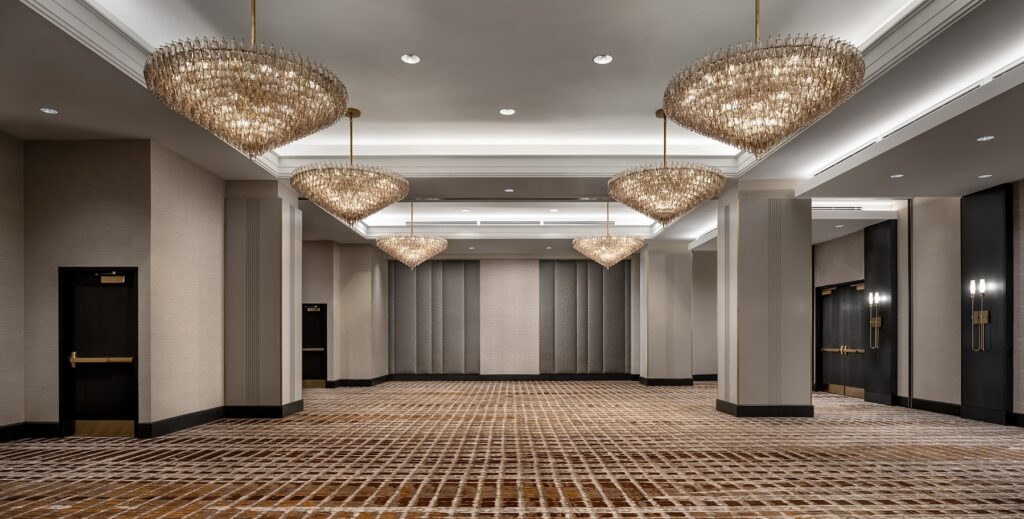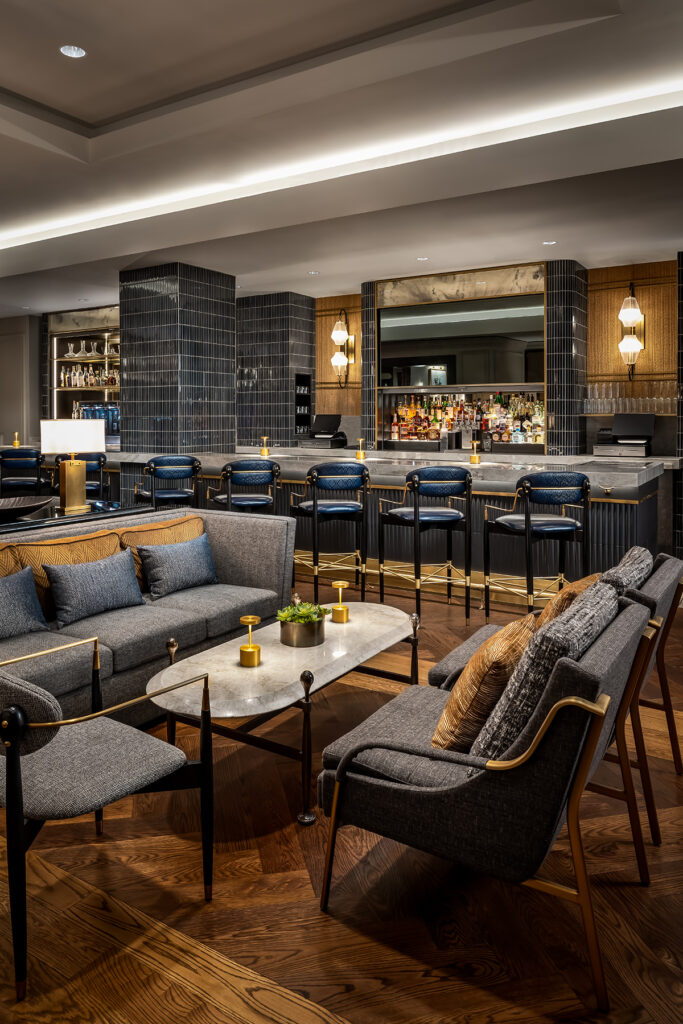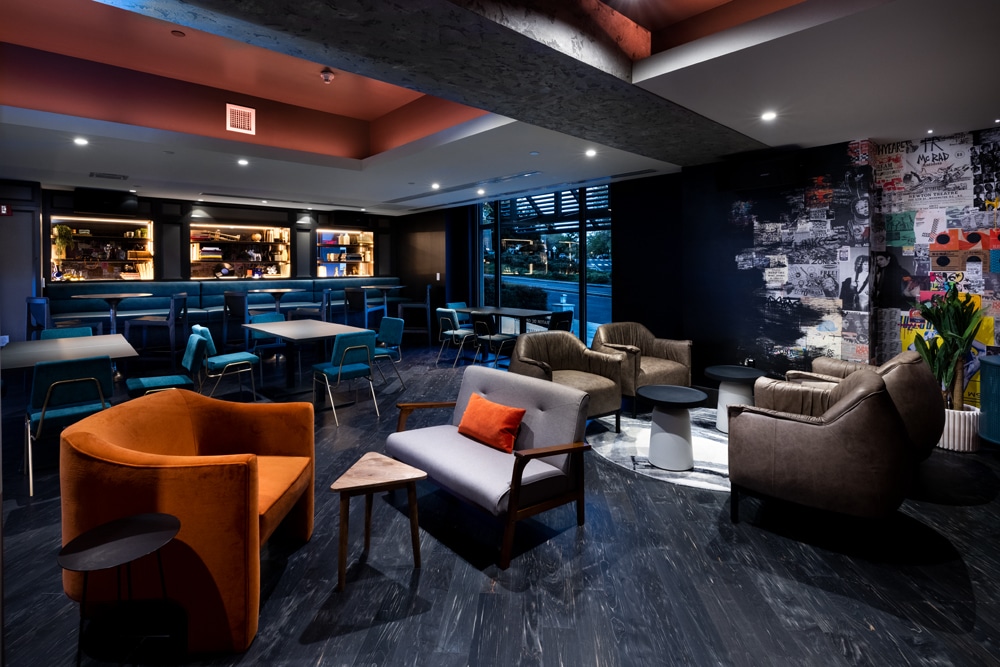
Blog | Dec 6, 2023
Unlocking the Future of Hospitality Construction
Hotel renovations are essential to keeping properties competitive in the ever-evolving hospitality landscape. They demand careful planning, collaboration, and adaptability to thrive in the face of changing market conditions. Members of our hospitality construction team recently got together with Benjamin West, a leading FF&E and OS&E purchasing firm, and other partners across the industry to discuss the key factors affecting the industry today and, in turn, hospitality projects all across the globe.
Here are the four crucial takeaways from our valuable insights and experiences:
The Power of On-Site Technology
While embarking on a renovation can come with challenges, there are innovative ways to mitigate risks and streamline the construction process, such as engaging virtual construction experts early. We recently utilized this strategy on a renovation project at the Westin Downtown Washington, DC while building out a comprehensive new design throughout the hotel’s meeting spaces, guest rooms, and other spaces.
By creating a virtual model room of a standard king hotel room using building information modeling (BIM) tools, stakeholders could visually explore and interact with the design before commencing construction. The 3D visualization of the space incorporated realistic textures, lighting, and spatial proportions, allowing stakeholders to immerse themselves in the space, change perspectives, and observe the design from various angles. This early engagement not only enhanced their understanding of the space but also fostered a smoother construction process.

Design Collaboration Best Practices
More often, contractors like us are actively collaborating with designers to create warm and welcoming spaces. Our collective experiences have provided us with some valuable tips to ensure successful partnerships between contractors and design firms:
- Architects typically need a flushed-out schedule ready at the Request for Proposal (RFP) stage.
- Early conversations about schedule expectations are essential as well as clear identification of what is important and necessary to begin.
- Interior design teams are typically a phase or two behind the architect. This flow works best, as their designs can be based on the final building perimeter, eliminating re-work.
- Thorough understanding and documentation, such as the building’s age and consultants selected, are crucial.
For a seamless project delivery, it’s crucial to kick things off with a formal meeting involving the project owner to establish clear goals and intentions. Keeping detailed records of these meetings minimizes misinterpretations. Additionally, providing designers with upfront access to budget and schedule information is essential for effective collaboration and allows all partners to meet expectations.


Hospitality Renovation Trends and Planning
In the current landscape, we’re witnessing an exciting shift in the world of hospitality renovations. Beyond simply upgrading guest spaces such as pools and fitness centers, hotel owners are now opening these areas to the broader community, leading to additional revenue from memberships and day passes. This trend translates into more substantial budgets and larger scopes for builders, with a major emphasis on guest public spaces.
However, planning these projects comes with its own set of challenges. To accommodate a hotel’s peak seasonality, it may be necessary to adjust schedules or break renovations into phases – a trend our team is seeing more and more. Another thing to keep an eye out for? Inflation. Before a hammer ever swings, create a full furniture, fixtures, and equipment budget that accounts for rising costs. We always recommend engaging the brand team early to ensure alignment with the hotel’s expectations and components.

Navigating Supply Chain Challenges
While researching insights that affect the hospitality industry, we must note the significant supply chain challenges. The Panama Canal is experiencing delays due to drought until June 2024 causing disruptions in container delivery, leading to increased warehouse costs and extended storage times for FF&E. Moreover, new greenhouse gas standards for heavy-duty vehicles will inflate transportation expenses, while ocean fuel costs have surged by 10%, resulting in trip cancellations for ships under capacity, further straining logistics and costs in shipping and transportation.
While these supply chain factors may seem beyond control, we’ve identifies strategies to stay ahead of the game:
- Cultivate strong partnerships with designers and suppliers for proactive solutions.
- Involve all stakeholders early in the project to address potential delays.
- Be detailed in the Request for Proposal (RFP) regarding product warehousing.
As the hospitality landscape undergoes a transformation, the insights shared above should equip you with valuable knowledge with which to navigate dynamic industry trends and stay ahead of the ever-evolving world of hospitality.
To learn more about HITT’s hospitality construction experts and their innovative and collaborative approach to building, visit our Hospitality page.

